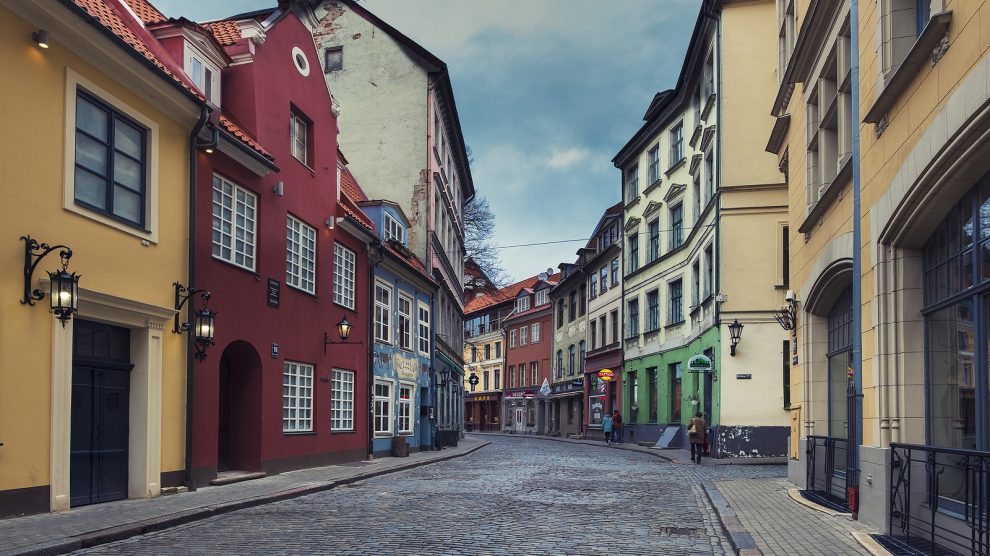In countries bordering Russia and Ukraine, tourist numbers were at least 30 per cent below pre-pandemic levels in July 2022.
A post-pandemic recovery in tourism risks faltering as the global economy loses momentum amid the energy shock triggered by Russia’s war of aggression against Ukraine, high inflation and weakened household purchasing power, according to a new OECD report.
- Poland tops Emerging Europe’s first Travel Competitiveness Index
- The way we travel is changing, and emerging Europe is well placed to take advantage
- How investors in Georgia’s tourism sector can benefit from the know-how of its pioneers
OECD Tourism Trends and Policies 2022 says many countries saw a strong rebound in tourism in 2022 on the back of pent-up demand, household savings and travel vouchers. However, international tourism is now not expected to recover until 2024 or 2025, or even later.
After six decades of consistent growth, the sector was dealt a huge blow by Covid-19. International tourism came to a near complete halt at the height of the pandemic, which accounted for 0.77 of every one US dollar of lost revenue in service exports in OECD countries in 2020.
With domestic tourism also constrained, tourism’s direct contribution to GDP fell by 1.9 percentage points in OECD countries with available data.
Covid-19 highlighted the vital role tourism plays in global, national and local economies, says the report.
Before the pandemic, tourism directly contributed 4.4 per cent of GDP and 6.9 per cent of employment, and tourism generated 20.5 per cent of service-related exports on average in OECD countries.
The latest evidence indicates that tourism has performed above expectations in many countries.
International tourist flows in July 2022 were just 19.9 per cent below July 2019 levels across reporting OECD countries, although there were marked variations across regions.
Arrivals in Denmark, Greece, Luxembourg, Portugal, Slovenia and Spain exceeded 2019 levels but in countries bordering Russia and Ukraine, tourist numbers were at least 30 per cent below pre-pandemic levels in July 2022.
Estonia, Finland, Latvia and Lithuania all reported remaining below or significantly below 2019 levels in 2022. Domestic tourism has already recovered in Estonia and Finland, but international tourism is not expected to do so until 2024 or 2025 for all four countries.
“The pandemic exposed underlying weaknesses in the wider tourism economy,” says OECD Secretary-General Mathias Cormann. “Fallout from Russia’s war of aggression against Ukraine is now threatening the sector’s recovery. The challenge for governments and businesses is not only to boost tourism in the short-term, but to also ensure the sector’s longer-term strength and sustainability.”

Action needed
Tourism businesses, already struggling to recover from the pandemic, are now also facing rising energy, food and other input costs. The sector faces huge uncertainty regarding labour and skills shortages which further risk constraining recovery. Restoring safe mobility is also required to bring back traveller confidence and tourism demand.
To support the recovery and to transform the sector, the report suggests that policy action is needed to strengthen collaboration across government, and with the private sector, to shape a brighter future for tourism.
Action is also needed to secure a robust and stable tourism sector that is more resilient to future shocks. The pandemic and cost-of-living crisis have underlined vulnerabilities in the sector and the need to build the capacity of government and business to react and adapt quickly.
This can be done by developing tailored destination management approaches and promoting a business environment where SMEs can succeed, and by taking sustained and transformative action to promote a green tourism recovery.
Unlike many news and information platforms, Emerging Europe is free to read, and always will be. There is no paywall here. We are independent, not affiliated with nor representing any political party or business organisation. We want the very best for emerging Europe, nothing more, nothing less. Your support will help us continue to spread the word about this amazing region.
You can contribute here. Thank you.







Add Comment